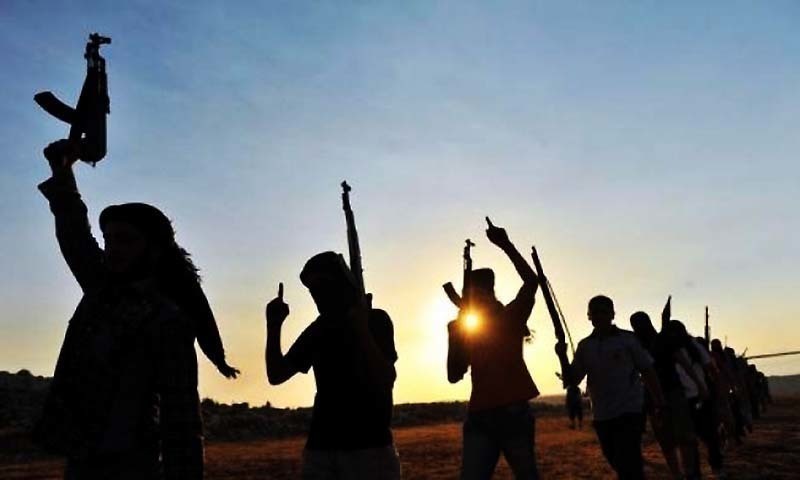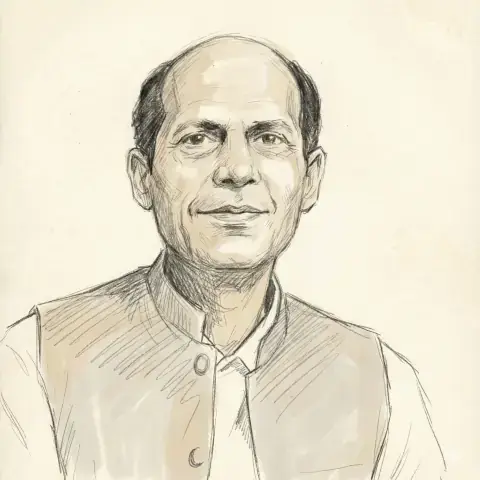ISLAMABAD: The government has banned another militant outfit taking the number of outlawed organisations to 77.
The fresh addition to the list is Khatam-Ul-Ambia, said to be an offshoot of Ansarul Hussain which was banned in the late 2016 for its alleged involvement in recruiting the youth from the Shia community to fight the militant Islamic State (IS) group commonly known as Daesh.
The process of maintaining a list of proscribed organisations started on Aug 14, 2001 when Lashkar-e-Jhangvi and Sipah-i-Mohammad Pakistan were outlawed. Later, on Jan 14, 2002, the government banned Jaish-e-Mohammad, Lashkar-e-Taiba, Sipah-i-Sahaba Pakistan, Tehreek-i-Islami and Tehreek-i-Nifaz Shariat-i-Mohammadi.
Tehreek-i-Jafria Pakistan was put on the list on Jan 28, 2002, followed by Al Qaeda on March 17, 2003, Millat-i-Islamia Pakistan and Khuddamul Islam on Nov 15, 2003 and Islami Tehreek Pakistan on Nov 15, 2003.
Three more organisations — Jamiatul Ansar, Jamiatul Furqan and Hizbut Tehrir — were banned on Nov 20, 2003 while Khair-un-Naas International Trust was proscribed on Oct 27, 2004.
Perspective: How best to tackle violent extremism in Pakistan
The Balochistan Liberation Army was placed on the list on April 7, 2006, and Islamic Students Movement of Pakistan on Aug 21, 2006.
Lashkar-i-Islam, Ansarul Islam and Haji Namdar Group were banned on June 30, 2008 and Tehreek-i-Taliban Pakistan was outlawed on Aug 25, 2008.
Five militant organisations from Balochistan — Balochistan Republican Army, Balochistan Liberation Front, Lashkar-i-Balochistan, Balochistan Liberation United Front and Balochistan Musallah Difa Tanzeem — were put on the list on Sept 8, 2010.
Three organisations from Gilgit — Shia Tulaba Action Committee, Markaz Sabeel Organisation and Tanzeem Naujawanan-i-Ahle Sunnat — and Peoples Aman Committee (Lyari), Karachi, were placed on the list on Oct 10, 2011.
The Ahle Sunnat Wal Jamaat, a reincarnation of Sipah-i-Sahaba Pakistan, was banned on Feb 15, 2012, followed by Al Harmain Foundation and Rabita Trust on March 6, 2012 and Anjuman-i-Imamia and Muslim Students Organisation (both from Gilgit-Baltistan) on April 24, 2012.
Tanzeem Ahle Sunnat Wal Jamaat (Gilgit-Baltistan) was placed on the list on June 5, 2012 while Balochistan Bunyad Parast Army, Tehreek Nafaz-i-Aman, Tahaffuz Hadudullah, Balochistan Waja Liberation Army, Islam Mujahideen, Jaish-i-Islam and Balochistan National Liberation Army were banned on Aug 4, 2012.
The list was widely expanded in 2013 with the addition of the Khana-i-Hikmat Gilgit-Baltistan on March 13 and Tehreek-i-Taliban-Swat, Tehreek-i-Taliban-Mohmand, Tariq Jeedar Group, Abdullah Azam Brigade, East Turkmenistan Islamic Movement, Islamic Movement of Uzbekistan, Islamic Jihad Union, 313 Brigade, Tehreek-i-Taliban-Bajaur, Amar Bil Maroof Wa Nahi Anil Munkir (Haji Namdar Group), Baloch Student Organisation-Azad, United Baloch Army and Jeay Sindh Muttahida Mahaz on March 15, 2013.
Since then, the list remained unchanged till July 15, 2015, when the name of Daesh (the Arabic acronym for the militant Islamic State group) was placed on the list of banned organisations.
Jamaat-ul-Ahrar and Lashkar-e-Jhangvi Al-Alami were added to the list on Nov 11, 2016, followed by Ansarul Hussain on Dec 30, 2016.
Tehreek-i-Azadi Jammu and Kashmir was the only addition made to the list on June 8, 2017. Jundullah was the last addition made by the then Pakistan Muslim League-Nawaz government in 2018.
The first addition to the list by the Pakistan Tehreek-i-Insaf government was made on Dec 13, 2018, when Yemen-based Al-Rahmah Welfare Trust Organisation was outlawed.
The Balwaristan National Front (Abdul Hameed Khan Group) was the first organisation to have been proscribed on Feb 26, 2019.
The decision to ban Jamaatud Dawa (JuD) and Falah-i-Insaniyat Foundation (FIF) was taken at a meeting of the National Security Committee, headed by the prime minister and comprising key cabinet members and military leaders, on Feb 21 last year, and a notification to that effect was issued by the interior ministry on March 5, 2019.
After a gap of over two months seven JuD and two FIF affiliates were also included in the list.
Pak-Turk International CAG Education Foundation was banned on April 18, 2019.
Hizbul Ahrar and Balochistan Raaji Ajooi Sangar were added to the list of terrorist outfits on July 26,2019.
Jeay Sindh Qaumi Mahaz-Aresar Group, Sindhu Desh Revolution Army and Sindhu Desh Liberation Army were added to the list this year These three -- one nationalist and two separatist organisations -- were banned on May 7, 2020.
Ghulaman-i-Sahaba and Maymar Trust continue to be on a watch list since May 30, 2017 and March 29, 2017, respectively.
Sachal Sarmast Welfare Trust Karachi and Al-Jaza Patient Welfare Organisation were added to the watch list in June last year.
Al-Akhtar Trust and Al-Rasheed Trust have been on the list under the UN Security Council resolution No 1267 since December 2005.
Published in Dawn, August 24th, 2020

































